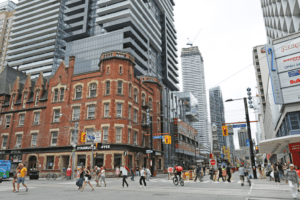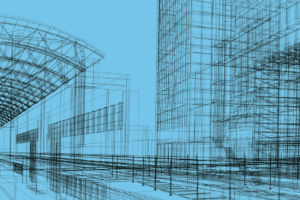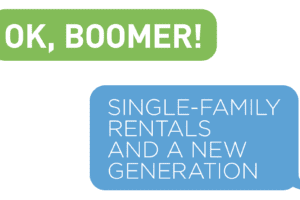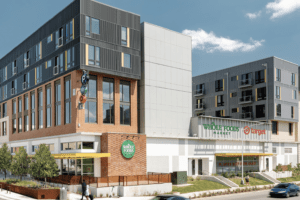
The ideas contained in this issue also represent the responsible outlook of an industry that demands the surety of the long-term view.

The ideas contained in this issue also represent the responsible outlook of an industry that demands the surety of the long-term view.

While COVID-19 has conjured visions of “the end” for some, history shows that catastrophes in the human story always lead to reinvention in culture and the built environment. Retail adapts to crisis and shows how providing a foundation and providing long-term value appreciation helps rebuild communities.

Summit Journal has been awarded a 2020 Platinum MarCom Award for excellence in print concept, design, and editorial vision.

In the midst of a global pandemic, every industry is racing to adjust its business practices to meet new demands and prepare for an uncertain future. What does this mean for real estate finance and ESG?

As the COVID-19 virus spreads around the world, it introduces a whole new dimension to the question: do people follow jobs or is it the other way around? Today, the answer is as much about public health as it is about the interplay of economics and demographics. It all depends on where we are in a business cycle.

Being intentional and open in our dealings with our investors, employees, and communities will bring closeness to all our relationships—particularly between managers and investors.

With COVID-19, advancements in medical science and technology, and the surprise of Generation X, where’s the medical office sector headed next?

Because it’s ubiquitous, it’s easy to take infrastructure for granted. But when choosing metros for potential investment, understanding is essential.

The demographic transition from baby boomers to millennials spells increased demand for single-family rentals in the coming decades. Supply needs to keep up.

Though mixed-use developments aren’t immune to COVID-19-related disruptions, demand is likely to grow as the crisis subsides.

COVID-19 and logistics: What have we learned so far, and what will be the lasting impact on the sector as it faces a new stay-at-home economy?

Understanding new changes in tenant demand, economics, and public health will be critical to the future of commercial real estate investing.

The global health pandemic has turned office use on its head—so what does this mean for the future of the sector?

Asset management has always been integral to long-term value creation for real estate, and during crises, it can also guide how to navigate challenging conditions.

The economic impact of COVID-19 won’t be felt equally across the US. Which cities are well-positioned for life after the pandemic (and why)?

With emerging crises and uncertainties in economies, foreign relations, and social attitudes, the real estate industry is facing a paradigm shift of its own.

The year of COVID-19 has been rife with anxiety and unrest—nothing new for real estate, but what does it mean for the future of the industry?

Infrastructure, mixed-use communities, logistics, retail, ethics, asset management, demographics, and so forth—and a common thread of futurism that ties it all together.

Imposter syndrome. It’s the ugly little secret of high achievers everywhere, whether award-winning actors, world-renowned writers or titans of industry.

Integral to AFIRE’s member mission is the need to create a space for experts to convene and discuss pressing questions that affect their own work and the success of their clients and their investments.
Enter your email address and password associated with your membership to log into AFIRE.org. If you are unable to login through this popup, go to https://members.afire.org to reset your password. For questions, contact us.